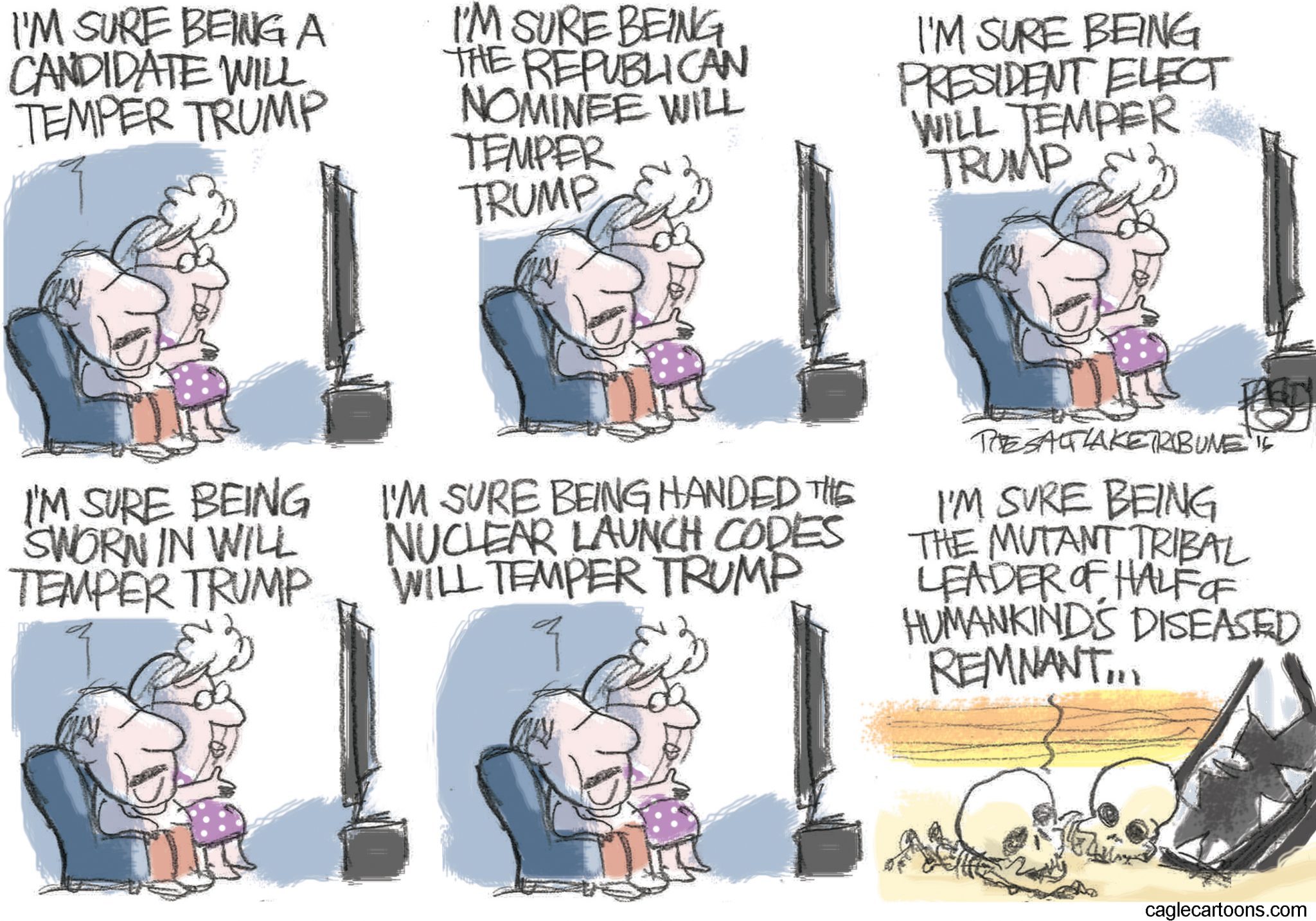BY JEREMY KUZMAROV
 Donald Trump is a con man, and one of his cons during the 2016 election was to present himself in the campaign as an isolationist.
Donald Trump is a con man, and one of his cons during the 2016 election was to present himself in the campaign as an isolationist.
Since taking over the presidency, Mr. Trump has proposed raising military spending by $54 billion, or nearly 10% of an already gargantuan $600 billion budget.
Mr. Trump has also vowed to continue the Obama strategy of training, equipping and supporting indigenous armies and security forces around the globe, appointing men with extensive Special Forces operations experience like Gen. James Matthis and H.R. McMaster to key foreign policy positions.
Gen. Tony Thomas, head of the military special operations command, was quoted in The New York Times on Tuesday [3.21.17] as saying that “more troops on the ground may mean you own the problem when you’re done with it.” The implication being that a light footprint approach relying on Special Forces and drone strikes could accomplish American policy objectives smoothly – and without much public scrutiny or protest.
The botched Special Forces raid on Yemen, however, which resulted in the killing of the eight-year-old daughter of radical cleric Anwar-Awlaki, a U.S. citizen killed previously along with his son in drone strikes, exemplifies how clandestine operations can backfire, as does the U.S.-NATO debacle in Libya which resulted in the strengthening of jihadist elements following the overthrow of Muammar Qaddafi.
The Trump-Obama infatuation with Special Forces fits a long historical pattern that should raise further alarm bells about the course of American foreign policy.
During the Cold War, the U.S. provided grants amounting to over $90 billion in military equipment and training to some 120 countries, many of them ruled by dictatorships.
Linguist Noam Chomsky and economist Edward S. Herman found in a study published in 1979 that military aid was “positively related to investment climate for U.S. multinational corporations and inversely [negatively] related to the maintenance of democratic order and human rights,” with other studies also emphasizing the connection to torture and death squad activity.
In an exchange with Gen. Lyman Lemnitzer, chairman of the Joint Chiefs of Staff, Wayne Hays, D-OH, said in 1961 that the “experience in Cuba with Batista [dictator] should have taught you that you can’t build an armed force on a base of quicksand. It was the same in Korea where you built a monster and a 32-year-old captain proclaimed himself a lieutenant general and took over the government.”
The Kennedy Administration was particularly infatuated with counterinsurgency, establishing the Green Berets whom Newsweek described as “hard muscled wielders of knife and garrote teaching their back alley arts to fighters for freedom in the jungles of Southeast Asia, the savannas of Central Africa, wherever revolt and terror encroach.”
In opposing leftist-socialists and “wars of national liberation,” the Green Berets tended, however, to bolster conservative military regimes that came to power in CIA-supported coups such as those in Vietnam, Laos, Cambodia, Guatemala, the Dominican Republic, Bolivia, and Brazil.
These regimes and others like them were valued for providing military bases and access to precious resources like uranium, and for creating a favorable investment climate through maintenance of cheap labor standards and low tax rates, which resulted from the repression of trade union activists and leftists promoting the nationalization of industry and resources.
Though packaged as key to the War on Terror, a similar agenda underlays many military assistance programs today including in Africa, where the Pentagon has allocated $250 million over two years to train local security forces. A lot of the training is now carried out by private military contractors [PMCs], who often lack the professionalism of military officers and have a vested interest in perpetuating endless war.
Like his predecessor, Mr. Trump would like us to believe that an “empire light” approach backed now by macho rhetoric will enable the defeat of terrorism with minor hassles. History, however, tells us that more blowback, dictatorships and a deteriorating world security situation will be the likely outcome.
– Tulsan Jeremy Kuzmarov is author of Modernizing Repression: Police Training and Nation Building in the American Century [Massachusetts, 2012] and author of an article on the history of American military assistance with Oxford encyclopedia.








